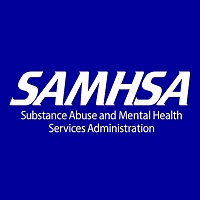
Biden-Harris Administration Announces $65.7 Million in Prevention, Treatment, and Workforce Enhancement Awards and Funding Opportunities to Advance President’s Unity Agenda for the Nation
$27.5 Million Dedicated to Strategic Prevention Framework – Partnerships for Success
The U.S. Department of Health and Human Services (HHS), through the Substance Abuse and Mental Health Services Administration (SAMHSA), announced over $65 million in grant awards and notices of funding opportunity (NOFO) to help tackle mental health and substance use crises – two key pillars in the President’s Unity Agenda. This includes $27.5 million through the Strategic Prevention Framework – Partnerships for Success (SPF-PFS) program to help Tribes, state and local governments, and colleges and universities to develop and deliver substance use prevention services. From 2020 to 2023, SPF-PFS grantees reached over 40 million people across the country through individual and group activities like community- and school-based interventions, public health messaging, and strengthening the enforcement of laws to prevent underage access to substances like alcohol and tobacco.
Additional awards will support children with unmet behavioral health needs, increase access to behavioral health care for people who are (or are at risk of) becoming unhoused, and enhance the behavioral health workforce by supporting substance use disorder (SUD) training for graduate-level health care professionals. This funding highlights the Biden-Harris Administration’s continued commitment to expand access to mental health and substance use services.
“We must continue to do everything in our power to help Americans who are struggling with mental health and substance use challenges. By increasing access to treatment and support in many different forms, we continue to strengthen communities nationwide,” said HHS Secretary Xavier Becerra. “President Biden and Vice President Harris’ Unity Agenda is helping solve big challenges that impact all Americans. The progress we make benefit everyone, no matter where you are across this nation.”
“SAMHSA’s Strategic Prevention Framework-Partnerships for Success grants help Tribes, state and local governments, and institutions of higher education develop and implement effective substance use prevention strategies and messages,” said Miriam E. Delphin-Rittmon, Ph.D., HHS Assistant Secretary for Mental Health and Substance Use and the leader of SAMHSA. “By fostering community-level partnerships, SPF-PFS grants will ensure these interventions will reach populations disproportionately impacted by substance use.”
The $49.1 million in awards includes:
- Strategic Prevention Framework – Partnerships for Success for States – ($12.5 million) – This program helps prevent the initiation and progression of substance use and its related problems by supporting the development and delivery of state and community substance use prevention strategies.
- Strategic Prevention Framework – Partnerships for Success for Communities, Local Governments, Universities, Colleges, and Tribes/Tribal Organizations – ($15 million) – This program helps prevent the initiation and progression of substance use and its related problems by supporting the development and delivery of community-based substance use prevention strategies.
- Linking Actions for Unmet Needs in Children’s Health (Project LAUNCH) – ($8 million) – This program promotes the wellness of young children, from birth to 8 years of age, by addressing the social, emotional, cognitive, physical, and behavioral aspects of their development, preparing young children to thrive in school and beyond.
- Treatment for Individuals Experiencing Homelessness – ($7.2 million) – This program provides comprehensive, coordinated and evidence-based services for individuals, youth, and families with a serious mental illness, serious emotional disturbance or co-occurring disorder who are experiencing homelessness or at imminent risk of homelessness.
- Provider’s Clinical Support System Universities – ($5.7 million) – This program ensures that graduate-level healthcare students receive substance use disorder (SUD) education early in their academic careers and prepare them to identify and treat SUD in non-specialty healthcare settings upon graduation.
- Coalitions Training Cooperative Agreement (CADCA) – ($675 thousand) – This program leverages existing resources to expand SAMHSA’s scope and capacity related to prevention; to provide training to state and community prevention leaders, including members of anti-drug community coalitions from around the country; and to promote prevention workforce development.
SAMHSA also announced up to $16.6 million available across two new funding opportunities that will help increase access to behavioral health services, regardless of an individual’s ability to pay and by enhancing and advancing health equity while preventing HIV and substance use among racial and ethnic minority communities.
- Certified Community Behavioral Health Clinic (CCBHC) Planning Grants – ($15 million) – This program supports states’ ability to develop and implement certification systems for CCBHCs, establish Prospective Payment Systems for Medicaid reimbursable behavioral health services, and prepare an application to participate in a four-year CCBHC Medicaid Demonstration program.
- Syndemic Approach to Preventing HIV and Substance Use Among Racial and Ethnic Minority Communities – ($1.6 million) – This program aims to advance equity in health outcomes for communities disproportionately impacted by HIV and SUD, particularly racial and ethnic minority communities especially all Black female identities, including cisgender, transgender, nonbinary, and genderqueer/fluid individuals in the South who are experiencing disparities related to HIV/AIDS, viral hepatitis (VH), sexually transmitted infections (STIs), SUDs, and/or mental health conditions.
These grant awards align with SAMHSA’s mission to lead public health and service delivery efforts that promote mental health, prevent substance misuse, and provide treatments and supports to foster recovery while ensuring equitable access and better outcomes.
If you or someone you know is struggling or in crisis, help is available. Call or text 988 external-link or chat at 988lifeline.org. To learn how to get support for mental health, drug or alcohol issues, visit FindSupport.gov. If you are ready to locate a treatment facility or provider, you can go directly to FindTreatment.gov or call 800-662-HELP (4357).
